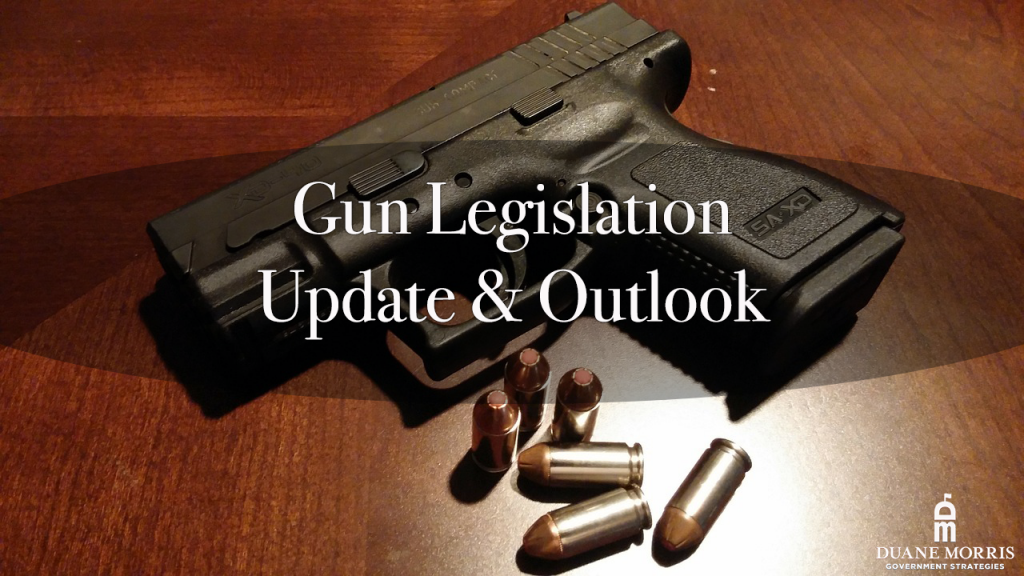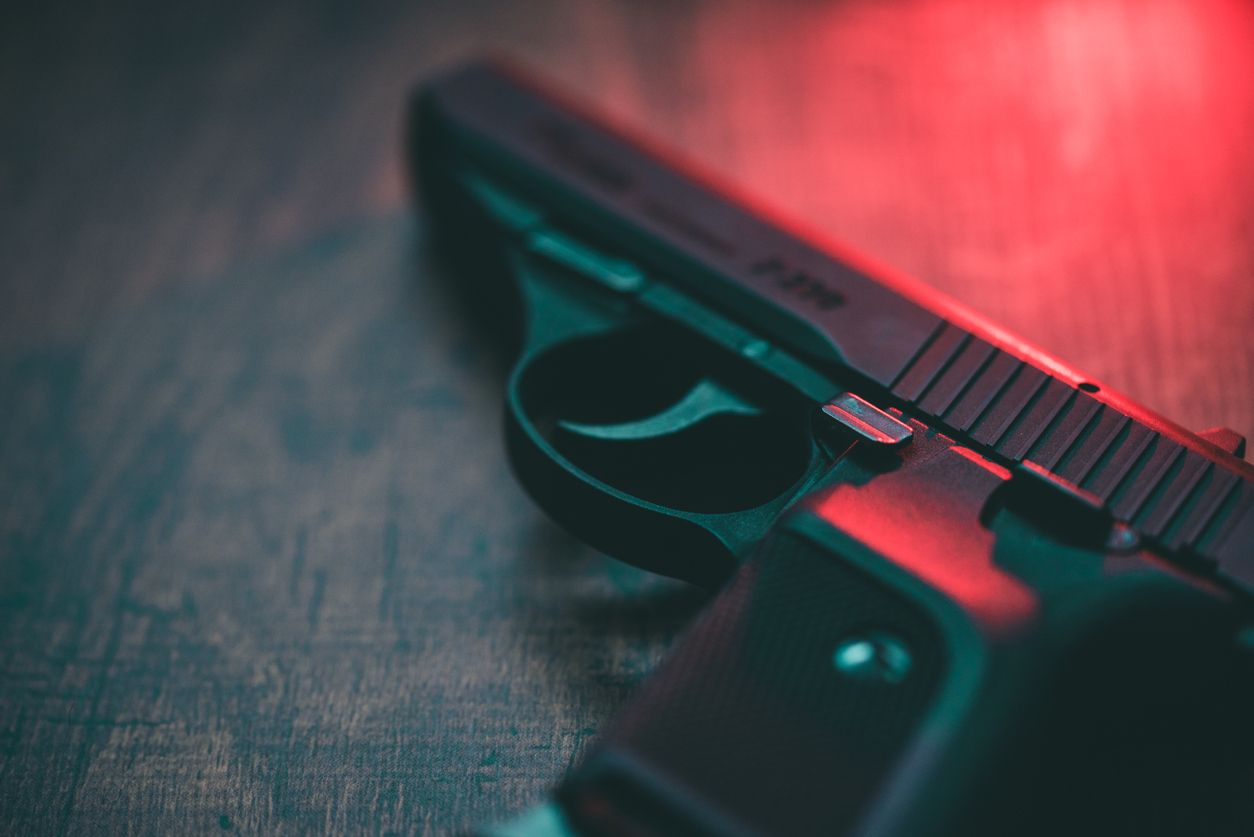
In early 2019, we looked at potentially major changes to “gun control” laws. We also looked at legislation and regulations related to “ghost guns” earlier this year. As lawmakers in states around the country pre-file legislation for the 2021 legislative sessions, many bills are related to the use and regulation of firearms.
Texas
Two weeks into Texas’ pre-filing for legislation in the 2021 session, nearly 60 firearm-related measures were introduced by lawmakers.
- HB 299 – grants authority to carry a firearm to certain unlicensed persons.
- HB 336 – would prohibit the recognition and enforcement of extreme risk protective orders.
- HB 304 – would repeal certain gun-free zones for license to carry holders.
- HB 196 – would modify the state’s “castle doctrine” law by adding a person is justified in using deadly force if they are unable to safely retreat. The bill would also remove robbery and aggravated robbery as crimes that could be stopped legally with deadly force by property owners.
- HB 52 and HB 245 – would both ban the sale of private firearms at gun shows.
- HB 218 – would create a registry for private firearms transactions.
- HB 603 – would prohibit Texas from recognizing a license to carry a handgun issued by another state, ending reciprocity.
Ohio
Ohio lawmakers recently passed Senate Bill 175, a so-called “stand your ground” bill. The bill would remove from state law the “duty to retreat” from a confrontation which compels people to reasonably try to escape before engaging with force if they have a reasonable belief of a threat to bodily harm. If approved, Ohio would become the 36th state to no longer require people to retreat before they are allowed to justifiably harm someone or use deadly force in self-defense. Governor Mike DeWine indicated he could veto the bill, stating that lawmakers should look at the reforms he sent them before acting on other bills.
In August 2019, Governor Mike DeWine announced his legislative reforms to address gun violence. The Governor’s list of reforms include:
- Safety Protection Orders – would remove firearms from potentially dangerous individuals and get them the mental health treatment they need all while maintaining an individual’s right to due process.
- Increased Access to Inpatient Psychiatric Care – would create a process where courts and community-based providers can work together to restore competency for those to stand trial in an outpatient setting which will free more hospital beds and decrease wait time for admission.
- Background Checks – would require background checks for all firearms sales in the state of Ohio with certain limited, reasonable exceptions, including gifts between family members.
- Increased Penalties for Felons Who Illegally Possess Firearms – would increase penalties on felons who illegally possess or use guns.
- Increased Penalties for Violent Felons Who Illegally Possess Firearms – would increase penalties for violent felons and other people found with a gun they do not have the legal right to possess.
- Increased Penalties for People Who Commit Felonies While in Possessing Firearms – would increase penalties for people who commit felonies with a firearm or who possess a firearm while committing a felony to a mandatory additional one- to three-year sentence.
- Increased Penalties for Brandishing a Gun – would increase the penalty for those who commit a felony while brandishing a firearm to a mandatory three- to five-year sentence.
- Increased Penalties for Straw Purchases – would increase the penalty for a straw purchase to a second-degree felony punishable by two to eight years in prison.
- Increased Penalties for Illegally Obtained Guns – would increase the penalty for a person who possesses a firearm that they know was obtained through an illegal or fraudulent purchase in order to avoid a federal background check.
- Increased Penalties for Those Who Improperly Provide Firearms to Minors – would increase the penalty for improperly providing a firearm to a minor to a third-degree felony punishable by up to three years in prison.
- Other reforms: Early Intervention, Access to Behavioral Health Services, Risk Factor and Resource Identification, School Tip Line, Social Media Monitoring, Community Safety, and School Safety and Intervention Programs.
Florida
In 2019, Florida Governor Ron DeSantis signed SB 7030 into law. The bill requires sheriffs to establish a “school guardian” program or contract with another sheriff’s office that has established a program, which allows teachers to be armed with firearms. The bill further requires the Office of Safe Schools to annually provide training for specified personnel and requires school boards and school district superintendents to partner with security agencies to establish or assign safe-school officers. Local school boards under the legislation are given the choice to allow whether or not teachers are to be armed as part of the guardian program.
Looking ahead to 2021, numerous bills have already been pre-filed. HB 6001 would remove the provision in state law prohibiting concealed carry licensees from openly carrying handguns or carrying concealed weapons or firearms into a college or university facility.
Further, SB 370 was pre-filed and would prohibit the sale or transfer of an assault weapon or a large-capacity magazine. SB 372 would further prohibit a person from printing, transferring, importing into the state, distributing, selling, possessing, or giving to another person certain 3D printed firearms.
Virginia
In the 2020 legislative session, Governor Ralph Northam signed legislation that removes the option for concealed handgun permit applicants to demonstrate competence with a handgun by completing an electronic, video, or online course conducted by a state-certified or National Rifle Association certified firearm instructor. The identical bills, SB 263 and HB 264, go into effect on January 1, 2021, although some lawmakers attempted to delay the effective date. The Virginia Senate passed SB 5041 in August during the legislature’s special session, which would have delayed the effective date of the previous bills to July 1, 2021, instead of January 1. SB 5041 passed the Senate 35-0 but did not move out of the House.
Looking ahead to 2021, HB 1757 was pre-filed on December 17. HB 1757 provides that if Virginia designates any property owned by it as a firearm-free zone or any locality does the same, the state or locality waives its sovereign immunity as it relates to any injuries sustained by people lawfully in such firearm-free zones. The bill is currently pending committee referral.
Pennsylvania
Before the end of the most recent legislative session, Pennsylvania Governor Tom Wolf vetoed numerous bills passed by the legislature, including HB 1747 and HB 2440. The former proposed removing the current prohibition of carrying a firearm in public during an emergency proclamation form the State or a municipal government. The latter would have created the Hunting, Firearm and Ammunition Life-Sustaining Business Act, providing that shooting ranges, sportsman clubs, hunting facilities and firearm and ammunition product manufacturers, retailers, importers and distributors, inclusive of their employees and agents, will always be considered life-sustaining businesses and shall never be shuttered or limited in their ability to produce, provide, sell or otherwise offer firearms, ammunition, firearm accessories, component parts of firearms, ammunition and firearm accessories, and all services, training, safety and practice related to firearms and hunting. Both bills were introduced in response to the COVID-19 pandemic.
Governor Wolf’s veto message for HB 1747 states while the powers repealed under the bill were not utilized in response to the COVID-19 disaster emergency, there needs to be flexibility to deal with unforeseen and unfathomable situations. The Governor further states the bill was an infringement on the authority and responsibility of the state’s executive during a disaster emergency.
Governor Wolf’s veto message for HB 2440 states the bill represented a meaningless attempt to alter the necessary tools for fighting the pandemic. The Governor also expressed his opinion that carving out the aforementioned businesses interferes with the state’s new targeted mitigation measures in dealing with COVID-19. The bill, according to Governor Wolf, attempted to take away the executive’s authority granted under the Emergency Management Services Code and the state Constitution.
Heading into the 2021 legislative session, dozens of bills have already been introduced by lawmakers related to firearms. Lawmakers sent out cosponsor memos for various gun legislation earlier this month including:
- Extreme Risk Protection Order – establishes a system for the implementation of Extreme Risk Protection Orders, which grants family members and law enforcement the ability to petition a court to temporarily suspend an individual’s access to firearms if there is documented evidence that an individual is a threatening harm to themselves or others. The person subject to that order must surrender their guns to police and will not be able to buy, sell, or possess other firearms with a judge determining the time frame of this suspension not to exceed one year.
- Divestiture and Investment Prohibition from Assault Weapon Manufacturers – will require divestiture and prohibit future investments by the Public School Employees’ Retirement System (PSERS’s), the State Employees’ Retirement System (SERS’s), the Pennsylvania Municipal Retirement System (PMRS), and the State Treasurer in any company that manufactures assault weapons (such as the AR-15), large capacity ammunition feeding devices, or assault weapon accessories (such as bump stocks).
- Firearm Safe Storage Requirements – requires that all firearms be safely stored whenever they are not in use.
- Ban on Multi-Burst Trigger Activators – would include “multiburst trigger activators” to the list of offensive weapons banned in the Pennsylvania crimes code and includes items such as binary triggers and slide fire/bump stocks.
- 3-D Printed Firearms – would ensure a 3D-printed firearm is treated as a standard firearm under law and is subject to all standing regulation. The bill would also prohibit anyone from printing a firearm without a license from the federal government to manufacture firearms.
Oregon
In the 2020 regular session, lawmakers in Oregon introduced numerous bills related to firearms. Two bills in particular received the attention of lawmakers: SB 1538 and HB 4005. Both bills received hearings or work sessions held, but neither received final House passage.
SB 1538 would have authorized city, county, metropolitan service district, school district, college or university to adopt ordinances or policies limiting or precluding affirmative defense for possession of firearms in public buildings by concealed handgun licenses.
HB 4005 would have required owners or possessors of firearms to secure the firearm(s) with trigger or cable locks in locked container or in gun rooms except in specified circumstances. Violations of the bill could have resulted in a maximum $500 fine and if a minor obtained an unsecured firearm as a result of a violation, the maximum fine would rise to $2,000. Additionally, the bill would have provided that a person who does not secure a firearm as required is strictly liable for injury to a person or property within two years after the violation.
2021 Legislative Session Dates
Find out when your state’s legislature will convene for the 2021 legislative sessions in our 50 state guide.
Latest News
Photo credit: iStock.com/Nastco The intersection of artificial intelligence (AI) and public safety is rapidly evolving, with state legislatures across the country considering policies related to AI-driven firearm detection technology, something we covered on our podcast [...]
In the latest episode of the "Back in Session" podcast, hosts Ryan Stevens and Ryan DeMara delve into the innovative world of AI technology applied in gun detection with Burgess Nichols from ZeroEyes. Starting with [...]
Photo credit: iStock.com/Josiah S There is insurance for everything: houses, cars, healthcare costs, and pets. Some are required but some, such as pet insurance and insurance for firearms, are not universally required in many states. [...]
Photo credit: iStock.com/barbol88 Extreme Risk Protection Orders (ERPOs), commonly referred to as “red flag laws,” allow for temporarily restricting a particular individual’s access to guns if they present a risk to themselves or others. In [...]






Stay In Touch